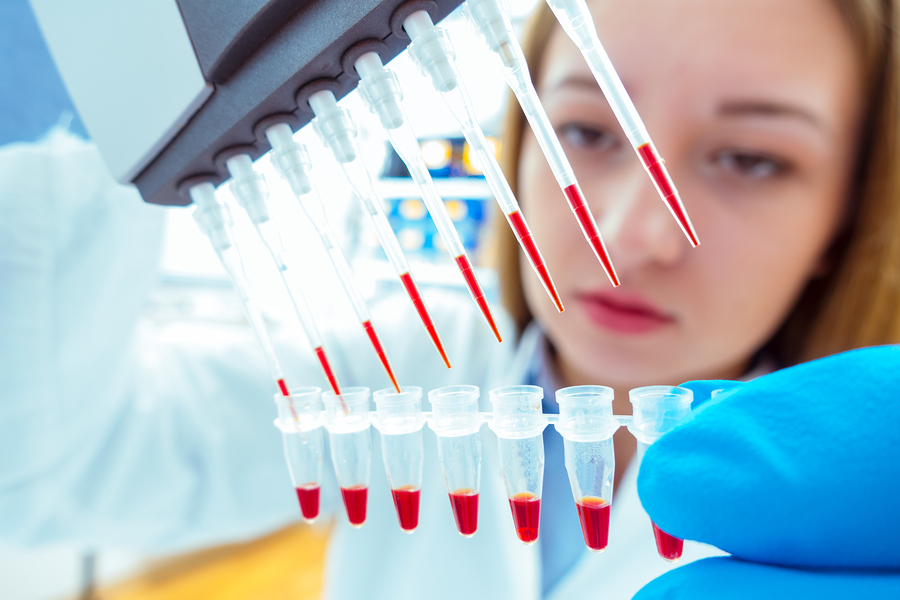- Make It Yourself Lavender Heart-Shaped Bath Bombs!
- 20 Things You Never Knew About “Down There”
- 12 Best Foods For Those Suffering From Arthritis Pain
- 12 Personal Hygiene Mistakes Almost Everyone Makes (Mom Never Told You About #4!)
- 15 Medicinal Plants And Herbs From The Cherokee People
- 12 Mind-Blowing Benefits Of Drinking Coconut Water During Pregnancy
- 12 Outstanding Winter Foods That Won’t Fatten You Up Like A Christmas Turkey
Cancer Prescreening Blood Tests: Do They Live Up To The Hype?
There are many different tests that can be run to detect the presence of cancer. Some of these tests are invasive and uncomfortable, so people who think they might have cancer are hesitant to get them done. There is, however, a deeper problem with cancer screenings: Most people with cancer do not get any tests until they begin to show symptoms. And why would they? If you’re not showing symptoms, there’s nothing wrong with you, right?
The truth is, of course, that the cancer in any given patient was probably growing for some time before it was detected. In some cases, the cancer can already be quite advanced before the patient even knows they have it. But what if there was a way to get around this issue with a simple test that could detect cancer in the earliest possible stages before symptoms even appear? A medical research team at the Johns Hopkins University Kimmel University Research Center thinks they may have found a way.
Prescreening for cancer with a blood test? So-called liquid biopsies have existed for some time, but the majority of such tests have been done on patients with late-stage cancer, or patients with whom doctors already had a strong suspicion of what kind of cancer they were dealing with. They are mainly used to determine whether cancer treatments are working. But up until now, there has not been any form of liquid biopsy that could detect the DNA of cancer cells in people who have not yet been diagnosed.
The team at Johns Hopkins however has found that cancer can cause changes in the blood to occur even before stage-1 symptoms appear. As part of their research, the team led by Dr. Victor Velculescu, developed a gene-sequencing technique called Targeted Error Correction Sequencing or “TEC-Seq” to examine the genes of cancer cells.
The blood test first establishes whether or not there are any tumor cells floating through the bloodstream. If such cells are detected, they are sequenced using the TEC-Seq approach mentioned, which involves the sequencing of the patient’s DNA over 30,000 times to detect any mutations caused by the tumor cells.
They discovered that patients who underwent the blood test and went on to develop cancer had more mutated DNA in their blood than those who did not. Sometimes, tumors don’t always develop into cancer. They just remain benign or the immune system is successful in killing it off early.
This technique was tested on a variety of patients with different stages of cancer to determine its’ effectiveness. Using the TEC-Seq blood test, they were able to detect instances of stage-1 colon cancer in 62 percent of patients tested. This included 50 percent of stage 1 cases and 90 percent of stage 2, 3, and 4 cases. For patients with stage-1 breast, ovarian and lung cancer, the test was able to detect it in 67, 62, and 45 percent of cases, respectively. What does this all mean?
Continue to Page 2
It means that this new technique is a good first step toward a reliable method of liquid cancer prescreening, but there is still a good deal more research that needs to be done. The results were good but not fantastic. In order to be truly be accepted as a liquid biopsy prescreening method, it needs to have a much higher success rate at detecting cancer cells in stage-1.
RELATED: 12 Effective Foods Which Fight And Destroy Cancer Cells
At present, the sequencing itself is also quite expensive— a few thousand dollars for each round of 30k sequences, although this technology is becoming less expensive as time goes on.
For now, conventional methods like colonoscopies, mammograms, and more remain the most reliable for detecting cancer. But there is good reason to hope that the work of Dr. Velculescu and his team have opened up the door to a new era of early detection.
References:































